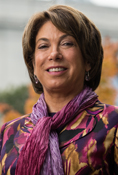
Laura D'Andrea Tyson is an American economist and university administrator who is currently a Distinguished Professor of the Graduate School at the Haas School of Business of the University of California, Berkeley and a senior fellow at the Berggruen Institute. She served as the 16th Chair of the White House Council of Economic Advisers from 1993 to 1995 and 2nd Director of the National Economic Council from 1995 to 1996 under President Bill Clinton. Tyson was the first woman to hold each of those posts. She remains the only person to have served in both posts.

Juliet B. Schor is an American economist and Sociology Professor at Boston College. She has studied trends in working time, consumerism, the relationship between work and family, women's issues and economic inequality, and concerns about climate change in the environment. From 2010 to 2017, she studied the sharing economy under a large research project funded by the MacArthur Foundation. She is currently working on a project titled "The Algorithmic Workplace" with a grant from the National Science Foundation.

Marina von Neumann Whitman is an American economist, writer and former automobile executive. She is a professor of business administration and public policy at the University of Michigan's Ross School of Business as well as The Gerald R. Ford School of Public Policy.
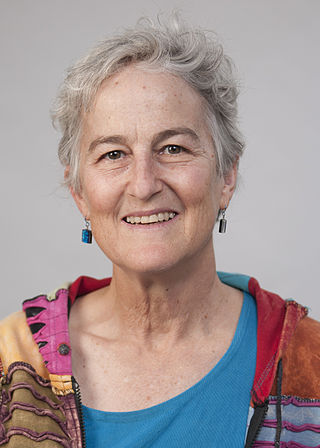
Nancy Folbre is an American feminist economist who focuses on economics and the family, non-market work and the economics of care. She is professor of economics at the University of Massachusetts Amherst.
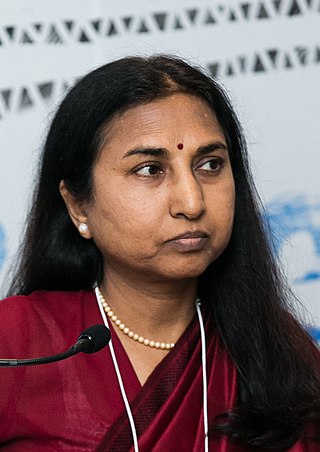
Bina Agarwal is an Indian development economist and Professor of Development Economics and Environment at the Global Development Institute at The University of Manchester. She has written extensively on land, livelihoods and property rights; environment and development; the political economy of gender; poverty and inequality; legal change; and agriculture and technological transformation. Among her best known works is the award-winning book—A Field of One's Own: Gender and Land Rights in South Asia—which has had a significant impact on governments, NGOs, and international agencies in promoting women's rights in land and property. This work has also inspired research in Latin America and globally.
Beverley Skeggs is a British sociologist, noted as one of the foremost feminist sociologists in the world. Currently, she works as a "Distinguished Professor" in the Sociology Department at Lancaster University, developing a Center for Social Inequalities in the North West of England. She continues to run the "Economics of Care" theme at the International Inequalities centre at the London School of Economics (LSE) and is a visiting professor at Goldsmiths University. She has been the head of two of the UK’s leading Sociology Departments, at the University of Manchester and Goldsmiths, as well as co-director of Lancaster's Women's Studies. In addition, she played a part in transforming Britain's oldest sociology journal, The Sociological Review, into an independent foundation devoted to opening up critical social science and supporting social scientists.

Barbara Warne Newell is an economist, career professor, and higher education administrator. Notably, she served as the tenth President of Wellesley College from 1972 to 1980 and was the first female chancellor of the State University System of Florida from 1981 to 1985.

Martha Chen is an American academic, scholar and social worker, who is presently a lecturer in public policy at the Harvard Kennedy School and senior advisor of the global research-policy-action network WIEGO and a member of the Advisory Board of the United Nations University World Institute for Development Economics Research (UNU-WIDER). Martha is a development practitioner and scholar who has worked with the working poor in India, South Asia, and around the world. Her areas of specialization are employment, poverty alleviation, informal economy, and gender. She lived in Bangladesh working with BRAC, one of the world's largest non-governmental organizations, and in India, as field representative of Oxfam America for India and Bangladesh for 15 years.

Ailsa McKay was a Scottish economist, government policy adviser, a leading feminist economist and Professor of Economics at Glasgow Caledonian University.
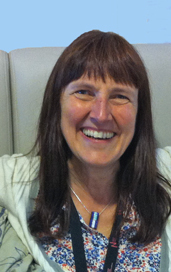
Margunn Bjørnholt is a Norwegian sociologist and economist. She is a research professor at the Norwegian Centre for Violence and Traumatic Stress Studies (NKVTS) and a professor of sociology at the University of Bergen. Her research has focused on financial institutions, management and working life and later on gender equality, migration and violence. She has also worked as a consultant, a civil servant, served as an expert to the European Commission and been president of the Norwegian Association for Women's Rights.
Janet Currie is a Canadian-American economist and the Henry Putnam Professor of Economics and Public Affairs at Princeton University's School of Public and International Affairs, where she is Co-Director of the Center for Health and Wellbeing. She served as the Chair of the Department of Economics at Princeton from 2014–2018. She also served as the first female Chair of the Department of Economics at Columbia University from 2006–2009. Before Columbia, she taught at the University of California, Los Angeles and at the Massachusetts Institute of Technology. She was named one of the top 10 women in economics by the World Economic Forum in July 2015. She was recognized for her mentorship of younger economists with the Carolyn Shaw Bell award from the American Economics Association in 2015.

Brigitte Young, is Professor Emeritus of International political economy at the Institute of Political Science, University of Münster, Germany. Her research areas include economic globalization, global governance, feminist economics, international trade, global financial market governance and monetary policy. She has worked on EU-US financial regulatory frameworks, European economic and monetary integration and heterodox economic theories. She is the author of many journal articles and books in English and German on the Global financial crisis of 2008–2009, the US Subprime mortgage crisis, the European sovereign-debt crisis, and the role of Germany and France in resolving the Euro crisis.

Violet Eudine Barriteau,FB, GCM, is a professor of gender and public policy, as well as Principal of the University of the West Indies at Cave Hill. She was also the president of the International Association for Feminist Economics (IAFFE) from 2009 to 2010, and she is on the advisory editorial boards of Palimpsest: A Journal on Women, Gender, and the Black International, published by SUNY Press, and Signs: Journal of Women in Culture and Society, published by University of Chicago Press.

Lucrezia Reichlin is an Italian economist who has been a professor at London Business School since 2008.
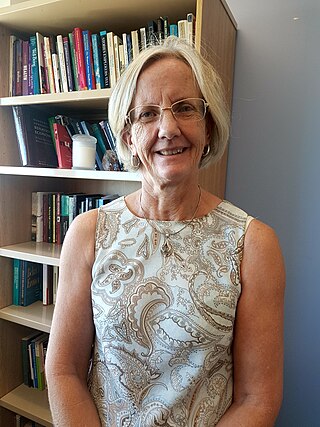
Siobhan Austen is an Australian economist and was a Professor of Economics and discipline lead of Economics at Curtin University until December 2020.
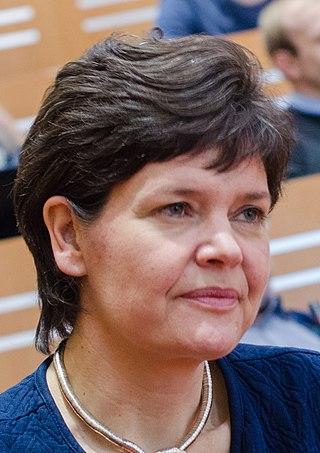
Kate Raworth is an English economist known for "doughnut economics", an economic model that balances between essential human needs and planetary boundaries. She is Senior Associate at Oxford University’s Environmental Change Institute and a Professor of Practice at Amsterdam University of Applied Sciences.

Shahra Razavi is an Iranian-born academic and senior United Nations official specialising in gender and social development. A graduate of the London School of Economics and Oxford University, Razavi is currently Director of the Social Protection Department of the International Labour Organisation in Geneva, Switzerland.
Michelle Holder is an American economist who is an Associate Professor of Economics at John Jay College of Criminal Justice in the City University of New York. Her research focuses on discrimination in the workplace and wage gaps between white men and other groups in the United States. In June 2021, she was named president and CEO of The Washington Center for Equitable Growth.
Marilyn ('Lyn') Ossome is an academic, specialising in feminist political theory and feminist political economics. She is currently Senior Research Associate of at the University of Johannesburg and a member of the advisory board for the Strategic Initiative for Women in the Horn of Africa, amongst other accolades. She is an editorial board member of Agrarian South: Journal of Political Economy, and in 2021, she co-edited the volume Labour Questions in the Global South. She serves on the executive committee for the Council for the Development of Social Science Research in Africa (CODESRIA). She is the author of Gender, Ethnicity and Violence in Kenya’s Transitions to Democracy: States of Violence.














